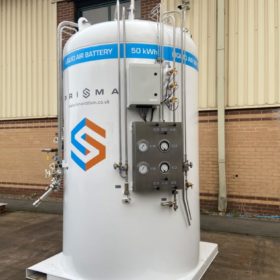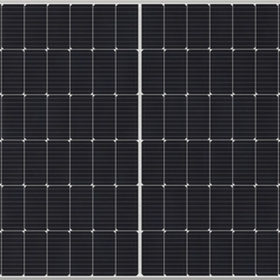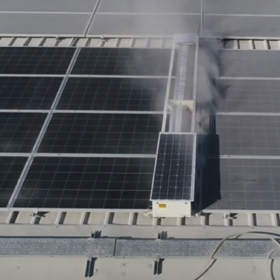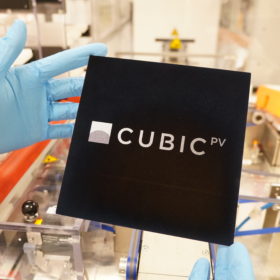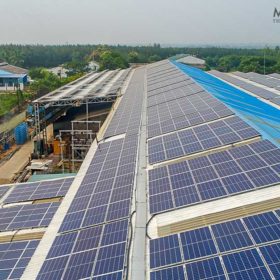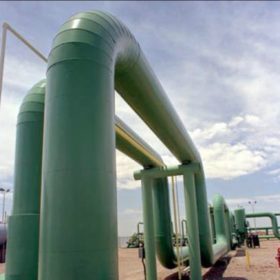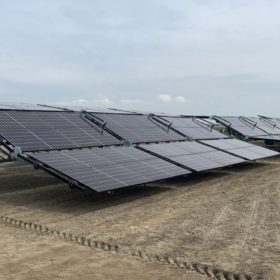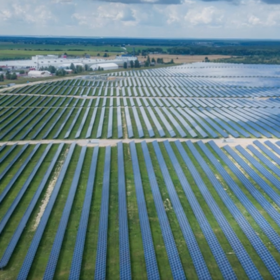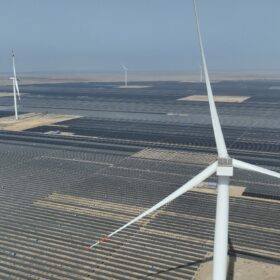UK group develops liquid air energy storage tech
A UK consortium has developed the Prisma system, which stores thermal energy in liquid air form to provide onsite compressed air, via a latent energy cold storage tank filled with a phase-change material. It is expected to have a levelized cost of storage of GBP 114 ($143.10)/MWh.
Sharp launches 540 W bifacial solar module
Sharp’s new IEC 61215 and IEC 61730-certified-certified panel features 144 half-cells based on M10 wafers and a 10-busbar design. Its operating temperature coefficient is -0.349% per degree Celsius and its power tolerance reaches up to 5%.
Self-powered, dry-cleaning robot for solar panels
Enray Solutions has developed an autonomous, water-free cleaning robot for ground-mount solar installations that draws its power from an on-board PV panel and battery. The robot is designed to withstand the harsh environmental conditions of all kinds of terrain.
The long read: Tapping the solar data trail
US-based energy tech company Enphase Energy appears to have overcome the adversity it faced in the mid-2010s, when it was grappling with competition from string inverters and slower growth in the residential segment. Now that rooftop solar is hot again, Enphase’s co-founder and chief product officer, Raghu Belur, sat down with Tristan Rayner to discuss the microinverter pioneer’s approach to quality in a time of rapid change and the growing utility of connected devices.
CubicPV, Waaree sign five-year deal for annual solar cell supply of 1 GW
USA-headquartered CubicPV will supply, per annum, 1 GW of Direct Wafer silicon solar cells to Indian manufacturer Waaree Energies under a five-year contract. The cells will be supplied from its upcoming 2 GW factory in India.
MIT, NREL researchers develop 40%-efficient thermophotovoltaic cell for grid-scale thermal batteries
The device is described as a heat engine with no moving parts that is able to produce power from a heat source of between 1,900 to 2,400 C. This concept is known as thermal energy grid storage (TEGS) and consists of a low-cost, grid-scale storage technology that uses thermophotovoltaic cells to convert heat to electricity above 2,000 C.
Transforming the energy storage market
Ensuring pragmatic energy storage transformation is proportional to tweaking the current battery storage chemistry. Zinc battery technology is gaining traction, changing the prevailing energy storage dynamics.
Delhi discom deploys digital data platform for solar energy management
BSES Yamuna Power Limited has deployed a digital solution pilot project that predicts the energy demand at consumption points like electric vehicle charging stations and energy generation capacity at solar rooftops. This will help the utility plan to store excess energy by considering the distribution congestion and commercial aspects.
Norway’s Statkraft, Aker Horizons partner to explore green hydrogen and ammonia production in India
Norwegian renewable energy developer Statkraft has partnered Norway’s green investment company Aker Horizons to explore fully-integrated renewable power generation and green hydrogen production in India, targeting local steel and fertilizer industries.
Mobile agrivoltaic system from the Netherlands
Created by a Dutch group of companies and research institutions, the mobile solar system may also be combined with an electrolyzer for hydrogen generation. Two prototypes are currently being tested by a farmer and a research institute in the Netherlands.
